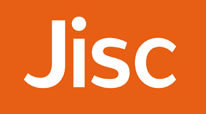Displaying 1–38
of 38 results | View 20
50
100
per page
-
PDF
Exploring digital carbon footprints
The hidden environmental cost of the digital revolution and the steps universities and colleges can take to address it.
Tags:
procurement | it | jisc | remote working | digital carbon footprint | cloud technologies
-
Web Page
Guide to the Intelligent Campus
Tags:
campus | intelligent campus
-
Web Page
The S-Lab: Supporting World Class Science programme aims to improve laboratory efficiency and effectiveness in all dimensions, including scientific value, resource efficiency...
Tag:
laboratories
-
Web Page
Straddling the disciplines of facilities management and scientific research support, the sustainable labs co-ordinator is an emerging role in universities. Martin Farley, became...
Tags:
green gown awards | research | laboratories | sustainable labs
-
Web Page
A guide on reducing energy costs. There is an increasing demand for IT services in universities and colleges, one area of cost that can and should be tackled is the cost of...
Tags:
energy | guide | higher education institution | estates operations | energy efficiency | cost reduction | Further Education Institution | information technology
-
Web Page
It's very common for buildings to be lit up, heated and cooled even when there is nobody using them. This may be an obvious area to consider when reducing energy costs, but...
Tags:
Student Engagement | guide | resource efficiency and waste | estates operations | Utilities | Staff Engagement and Human Resources | Sustainable ICT | Partnership Engagement
-
Web Page
A guide for using videoconferencing and collaboration technology to reduce travel and carbon emissions. How the right technology can be a usable alternative to physical travel...
Tags:
guide | resource efficiency and waste | estates operations | Utilities | webinar | Travel and Transport | Sustainable ICT | videoconference
-
Web Page
You can put many measures in place to reduce energy use, but very few changes can be implemented, or the full benefits realised, without co-operation from users. Users need to...
Tags:
Student Engagement | guide | resource efficiency and waste | estates operations | Utilities | Staff Engagement and Human Resources | Sustainable ICT | Partnership Engagement
-
Web Page
Intute Environment provides free access to high quality resources on the Internet. Each resource has been evaluated and categorised by subject specialists based at UK universities.
Tags:
education | research
-
Web Page
In 2007 the University of Birmingham upgraded one of its computer clusters, replacing 70 traditional workstations with equivalent specification but lower energy TFT-PCs.
Tags:
efficiency | ICT | jisc
-
Word Document
In order to set an example by operating in an environmentally and socially responsible way, the Higher Education Funding Council for England set a key objective to minimise...
Tags:
carbon reduction | case study | higher education institution | Operational | estates operations | video | Travel and Transport | Sustainable ICT | england | funcing council
-
Web Page
Case study of Coventry University Enterprises, piloting a voluntary location-independent working scheme encouraging participants to work out of the office for 40–60% of their time.
Tags:
efficiency | ICT | jisc | workspace
-
PDF
A case study from Jisc and the London Metropolitan Network (LMN)which provides a data back up solution to London institutions using the state-of-the-art technology.
Tags:
energy | ICT | data | technology | storage | centre | efficient
-
Word Document
Established in 2000, the Welsh Video Network supports videoconferencing studios in every university and college in Wales, and facilitated over 4,800 conferences in 2006-07....
Tags:
college | learning | case study | higher education institution | Operational | estates operations | Learning and Teaching | Utilities | wales | video | Travel and Transport | Sustainable ICT | Teaching Research
-
Word Document
Founded in 2005, the Scottish Universities Physics Alliance (SUPA), comprising Edinburgh, Glasgow, Herriot-Watt, St Andrews, Strathclyde, and West of Scotland Universities, is...
Tags:
Scotland | learning | case study | higher education institution | Operational | Learning and Teaching | video | Travel and Transport | Sustainable ICT | Teaching Research
-
Web Page
Ave Maria University has integrated all its IT and facilities management, including air conditioning, lighting, security cameras, fire alarms, electrical and building-access...
Tags:
International | learning | case study | teaching | research | higher education institution | resource efficiency and waste | Operational | estates operations | Learning and Teaching | Utilities | estates | Sustainable ICT | network | consumption | SusteIT
-
Web Page
Middlesex University is in collaboration with the British Computer Society (BCS) to develop student and professional knowledge of ethical, environmental and social issues in ICT
Tags:
teaching | ICT | ethical
-
Word Document
Case study of the University of York cutting carbon in computing initiative
Tags:
energy | carbon | ICT | management | computing
-
PDF
A case study from Jisc about how WEEE Regulations stimulated NTU to reduce the amount of waste generated and to manage the residue more effectively.
Tags:
waste | efficiency | ICT | WEEE | Equipment | Electrical | Electronic
-
PDF
A case study from City and Islington College, which donates its old computers to developing countries via the charity Computer Aid.
Tags:
waste | recycling | ICT | WEEE | computer | pc
-
Web Page
This case study explains how the University of Sheffield has undertaken a detailed estimate of the energy/carbon footprint of its ICT estate.
Tags:
university | ICT | jisc | electricity | Sheffield
-
Word Document
This case study explores how the Wheeltop Project of Beaumont College uses ICT to support the learning and development of physically disabled students.
Tags:
students | inclusion | commuication | disabled | technolgy
-
Web Page
By investing in low energy PC and server systems, the research team has lowered the environmental impacts of their computational-intensive modelling
Tags:
research | Sheffield
-
PDF
A case study from SUSTEIT about free cooling, avoidance of hot/cold air arrangements, and variable speed drives, which can save in energy costs, compared to older, unoptimised,...
Tags:
energy | ICT | cooling | computing
-
Web Page
Purpose-built to house the School of Computing, a simple, low energy design, which saves energy, reduces environmental impacts and enhances productivity
Tags:
it | building | Dundee
-
Word Document
At the University of Liverpool, the self-developed software powers down around 3,500 participating computers that are idle for over 10 hours daily, bringing numerous benefits.
Tags:
efficiency | ICT | it | power | computers | software
-
Web Page
Case study of the University of Gloucestershire realizing that computer and printer procurement and usage was a significant contributor to the university’s environmental...
Tags:
ICT | computer | printer
-
Word Document
When City of Bristol College encountered a growing number of servers with the related power and cooling requirements, it looked at virtualisation mainly for server...
Tags:
college | case study | resource efficiency and waste | development | Operational | estates operations | Utilities | Sustainable ICT | it | virtualisation
-
Word Document
This case study introduces "HECToR" (High End Computing Terascale Resources)
Tags:
Edinburgh | data | jisc | cooling | HECToR
-
Web Page
This case study explains how Jisc were able to provide Cardiff University with new technology allowing twice as many servers in less space and the total cost.
Tags:
university | data | cooling | centre | Cardiff | Energy Efficient
-
Web Page
A case study, from Cardiff University, explaining how using Condor could help cut your electricity use.
Tags:
energy | university | computing | efficient | Cardiff | Grid
-
Word Document
In the Queen Margaret University campus a key feature is thin client IT infrastructure, which produces less heat and allows the building to be mostly naturally lit and ventilated.
Tags:
estates | it | ventilation | thinclient
-
Word Document
Replacing 120 physical servers with 13 VMware ESX host servers has enabled Sheffield Hallam University to expand server capacity considerably, while reducing energy costs and...
Tags:
case study | higher education institution | resource efficiency and waste | Operational | estates operations | Utilities | Sustainable ICT | it | england | operating system
-
Web Page
The Suste IT Tool is a simple carbon accounting tool that calculates the amount of energy (kWh), carbon (CO2) and money (£) is spent on ICT related energy use.
Tags:
carbon | ICT | suste
-
PDF
Sustainable ICT in Further and Higher Education, a JISC report, provides useful information on good practice in environmentally sustainable ICT
Tags:
jisc | act | 2008 | FAQ
-
PDF
ICT briefing by JISC for the senior management team in November 2011, elaborating on the ways available for institutions to use ICT to go green, employing a couple of case studies
Tags:
ICT | briefing
-
Web Page
This report on sustainable ICT, produced for the Joint Information Services Committee (JISC) was by Professor Peter James and Lisa Hopkinson at the University of Bradford.
Tag:
ICT
-
Web Page
Most colleges and universities have some sort of data centre. Ever-increasing data storage and processing needs mean that the energy needed to run the computers and to deal with...
Tags:
higher education institution | environment | energy efficiency | retrofit | electricity | cost reduction | engineering | Further Education Institution | data centre | information technology | comsumption






 Except where otherwise stated, content on this site is
licensed under a Creative Commons Attribution 3.0 License.
Except where otherwise stated, content on this site is
licensed under a Creative Commons Attribution 3.0 License.
